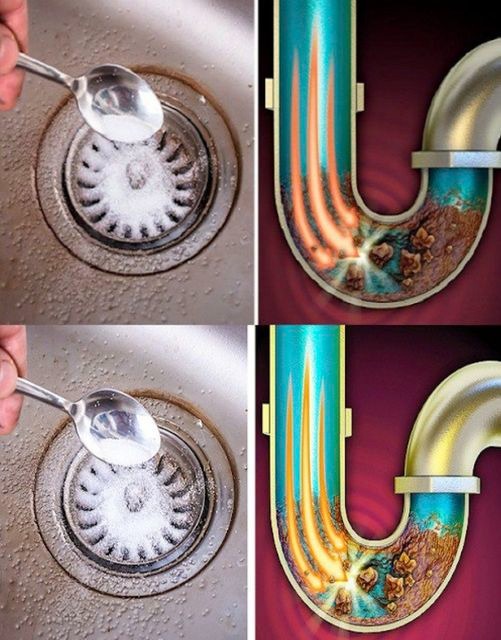Salt, a pantry staple, boasts myriad household uses, including clearing drain blockages. Sprinkle approximately half a cup of salt down the clogged drain before flushing it with hot water. The salt’s abrasive nature helps dislodge stubborn deposits, while its osmotic properties draw out moisture, aiding in the dissolution of organic matter.
Dynamic Duo: Baking Soda and Vinegar:
Few combinations are as effective and environmentally friendly as baking soda and vinegar when it comes to drain maintenance. Begin by pouring half a cup of baking soda down the drain, followed by an equal amount of vinegar. The ensuing chemical reaction produces bubbles that help break down debris and neutralize odors. Finish by flushing the drain with boiling water to wash away the residue.
Plunger Power Play:
When faced with a particularly stubborn clog, don’t underestimate the power of the plunger. Whether it’s a sink or toilet drain, a few vigorous plunges can often dislodge the obstruction. Ensure you’re using the correct type of plunger for the task at hand, and maintain a steady, rhythmic motion. If repeated attempts prove fruitless, it may be time to seek professional assistance.
Enzymatic Drain Cleaners:
For those preferring a hands-off approach, enzymatic drain cleaners offer a bio-friendly solution to persistent clogs. These products contain naturally occurring enzymes that target organic matter, breaking it down into smaller particles that can be easily flushed away. While typically slower acting than chemical alternatives, enzymatic cleaners pose minimal risk to both your plumbing and the environment.
Conclusion:
